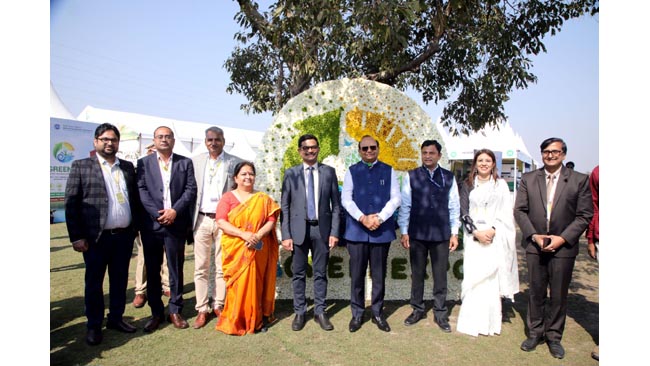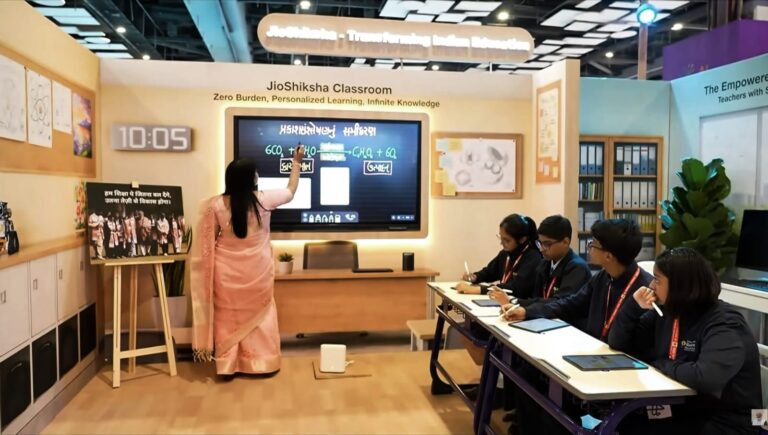
Jaipur, 15 May 2024.
TERI Distinguished Fellow mentors Rajasthan Industry Stakeholders on advancing renewable energy and sustainable practices
Jaipur– Mr Jiwesh Nandan, a Distinguished Fellow specializing in Industrial Energy Efficiency at The Energy and Resources Institute (TERI), visited Jaipur to provide mentorship to the industry charter working on solar and renewable energy in Rajasthan. Leveraging his extensive experience as a former IAS officer and expertise in Power, Energy Efficiency, Renewable Energy, Development Management, and Public Administration, Mr Nandan shared insights and recommendations to bolster the state’s solar energy landscape.
Blending his expertise with TERI’s research excellence, Mr Nandan provided strategic guidance to foster the development of Rajasthan’s new solar energy policy. The policy aims to enhance energy independence and resilience by promoting the adoption of renewable energy sources. Notably, Rajasthan is poised to experience unprecedented growth in cost-effective variable renewable energy (VRE) capacity, with projections indicating over 60 GW of VRE capacity by 2030, comprising 30 GW of solar photovoltaics (PV) and 30 GW of wind.
Mr Jiwesh Nandan, emphasized, “Businesses reflect the changing values and changing economics, which the world is currently witnessing, by focusing on resource efficiency and clean energy. As businesses carry out such initiatives, we need to make sure that others learn about it and the first-movers become the pioneers to inspire action by many. Indian businesses today are developing technologies that shall meet our future needs. Consumers are at the heart of this movement – companies will follow where consumers take them. Hence, it is important to tell consumers what is possible. We will need to create excitement for people at large about sustainability and net-zero future.”
Mr Nandan underscored the transformative potential of renewable energy in Rajasthan’s commercial and industrial sectors, urging industry representatives to explore low-carbon policy avenues tailored to promote renewable energy and energy efficiency. He underscored the opportunities for integrating solar energy into commercial and industrial operations, highlighting the importance of customized solutions for each sector.
Furthermore, Mr Nandan highlighted Rajasthan’s Renewable Energy Policy 2023, targeting 90 GW of renewable energy projects by FY 2029-30, as a significant driver of sustainable energy development in the state. Additionally, he emphasized the potential of shifting agricultural demand to daytime hours and integrating electric vehicle (EV) load to reduce reliance on grid-scale batteries, thereby enhancing energy sustainability in Rajasthan.
TERI’s impactful initiatives in Rajasthan were showcased during the visit, with Mr Nandan encouraging industry players to participate in the movement towards sustainable practices and energy integration. TERI’s study suggests that by 2030, integration of renewables to the tune of ~ 35% of the total energy mix can be achieved at no extra system (generation) cost. To realize the full potential of the Rajasthan Renewable Energy Policy 2023, the utilities in Rajasthan need to take a deep dive to find the best recourse factoring in their supply portfolio and demand profile. TERI recommends that utilities need to put in place a roadmap to integrate increasing quantum of renewable energy duly addressing the variability and intermittency of VRE (variable renewable energy). TERI is also providing support at the State level for developing understating of the kind of new generation capacity likely to be there and the implications of increasing penetration of Renewable Energy.
As the Secretariat of the industry coalition, TERI will continue to lead efforts in assessing future pathways for India’s energy and industry transition. The purpose of Mr Nandan’s visit was to mentor the industry stakeholders in Rajasthan to further advance sustainable practices, promote renewable energy adoption, and integrate energy systems for a greener and more resilient future.






